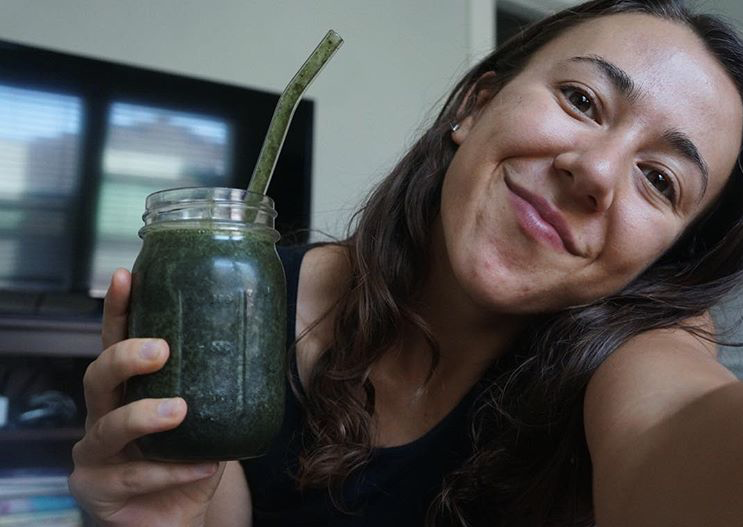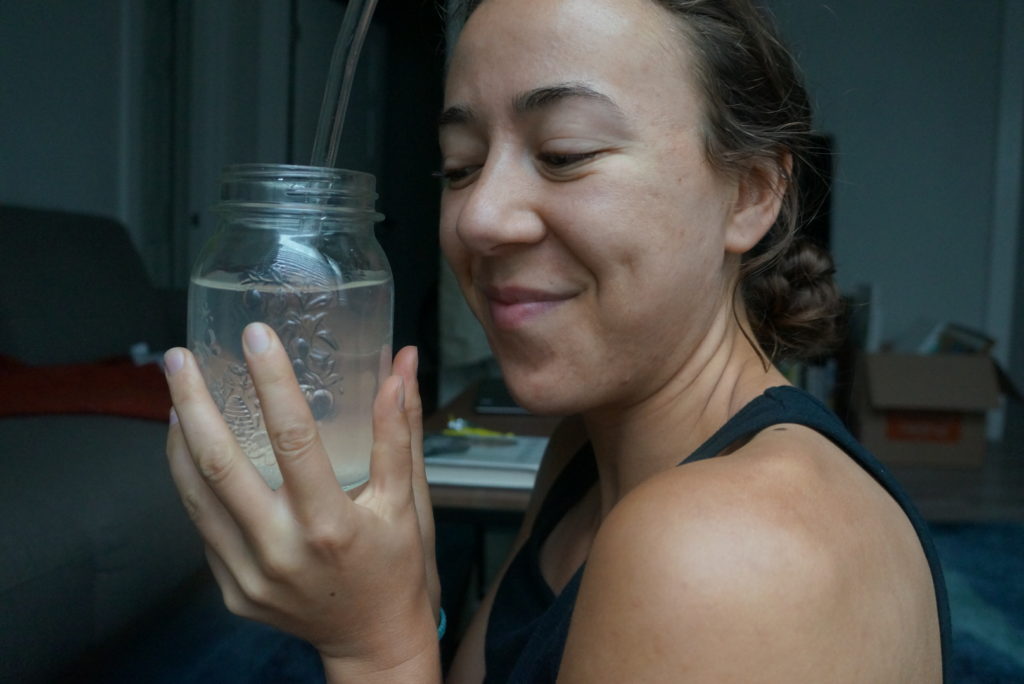
Working out is great. Nothing beats the feeling of sweating it out in a hot yoga studio, holding the 60-second plank you challenged yourself with, or finally starting to run (instead of walk up) the hills in your usual jogging route (ahem, me). Even during the age of the coronavirus, exercise is important to boost the immune system and support mental health. So whether you’re getting outdoors for walk/jogs or creating do-it-yourself exercises in your living room, rehydration is key for replenishing our body post-sweat. For those who workout consistently, drinking plain water might not be enough.
I used to be considered a competitive athlete. Like running over 50 miles a week and actively racing kind of athlete. In college I was a middle-distance runner and knew the pains of sore muscles and exhausted limbs. What I ate and drank impacted my performance in every way. Finding the right balance for myself was key, and I definitely had to learn the hard way sometimes.
But aren’t we all technically athletes? I mean, our bodies are meant to be active. Regardless of intensity, active bodies deserve self-care and replenishment. So whether you run 50 miles a week, participate in recreational sports, have a yoga membership, dance, or just make up your own workouts, you’re an athlete and should care for your body as such.
Here are some strategies for getting electrolytes, the plant-powered way.
Why are Electrolytes Important?
We hear the term a lot, but what are they really?
Electrolytes are minerals that carry an electric charge. Examples of these electrolyte minerals include: sodium, calcium, potassium, chloride, phosphate, and magnesium. These can be found in specific foods and drinks. If you are buying “electrolyte water” it’s likely they are containing some of these minerals.
Electrolytes help to:
- Support nerve, muscle, heart, and brain functioning
- Balance the our body’s water levels
- Regulate our body’s acidity and alkalinity (pH) levels
- Transport nutrients to our cells
- Transport waste out of our cells
In other words, they are vital to our body’s healthy functioning. But when we sweat during a workout, we lose both water and electrolytes. The exact amount of lost electrolytes can vary from person to person and depend on the intensity of the exercise. So how much you personally need to replace varies. Those with intense and sweaty workouts might need to supplement with sports drinks or powders, while others with low-key workouts might just need to focus on eating the right foods and drinking enough water.
How to Replenish Your Electrolytes
Foods
Upon researching electrolyte-filled foods, I was shocked to learn how many different varieties are actually good sources of electrolytes. Some I never would have suspected!
Fruits, Vegetables, and Leafy Greens
Fruits such as apples, lemons, oranges, bananas, tomatoes, avocados, strawberries, and watermelon. Bananas are an especially great form of electrolytes as they are high in potassium. During my peak running phase, I would be sure to eat at least two bananas post-workout! Vegetables and greens like spinach, kale, corn, beets, green beans, sweet potatoes, potatoes, squash, and artichokes are also great electrolyte sources.
Beans
Beans such as red, pinto, white, lima, and mung beans are great options for electrolytes.
Nuts
Peanuts, almonds, walnuts, pumpkin seeds, hazelnuts, pistachios, and sunflower seeds are all great examples of nuts and seeds containing electrolytes. I personally love sprinkling pumpkin seeds on top of my oatmeal.
Proteins
While some animal products do contain electrolytes, for a plant-powered athlete, tofu can supply electrolytes (in addition to all the yummy plant foods listed above).
Juices and Smoothies
A green smoothie is very characteristic of the vegan diet and health-food movement on Instagram. Cute selfies with a smoothie or fresh juice are everywhere (of which I am personally guilty, see below). But the health benefits of smoothies and juices make them more than just a trend. They are a great way to get multiple servings of fruits and vegetables in one glass and boost hydration.

Celery Juice?
Popularized by the Medical Medium and various celebrities on Instagram, celery juice is gaining steam as a “miracle juice” that can drastically improve health and cure ailments. Independent scientific research is still needed to provide an unbiased perspective, but it’s claimed that celery juice can provide our body with beneficial sodium that provides nutrient-filled hydration.
Sports Drinks
Gatorade, Powerade, and Propel Water, are popular sports drinks marketed for rehydration. While they do contain some electrolytes like sodium and potassium, they also can contain added sugars and artificial colors and flavors. Artificial colors have shown to have problematic health impacts and some are even carcinogenic.
Coconut Water
Being high in potassium, coconut water can be favored as a “natural” alternative to sports drinks. Research shows that it contains more potassium than Gatorade and bananas!
Electrolyte Powders
Electrolyte powders allow you to make your own electrolyte beverage by mixing the powder with water. These electrolyte powders contain different electrolytes like magnesium, sodium, potassium, and calcium. These are great if you exercise a lot and need the extra boost. I’ve personally used the brands Vitalyte andNuun (both are vegan) and enjoy them.
Lemon Water
My favorite beverage (literally). Check out this article I wrote sharing how lemon water has changed my life (not really being dramatic here). Adding lemon to water can give an electrolyte boost due to the naturally occurring sodium, potassium, magnesium, and calcium in lemons.

Conclusion
So many ways to hydrate. Overall, it seems like a whole-foods plant-based diet can put us in a good place to regain electrolytes. I was surprised to learn how even the “non-watery” foods like nuts and seeds contain electrolytes.
The author racing (years ago) as a plant-powered competitive athlete.

What’s your favorite way to rehydrate after a workout?
Get more like this—Sign up for our daily inspirational newsletter for exclusive content!
__
Photo: Andrew Tanglao on Unsplash; Instagram @thrivehappy




